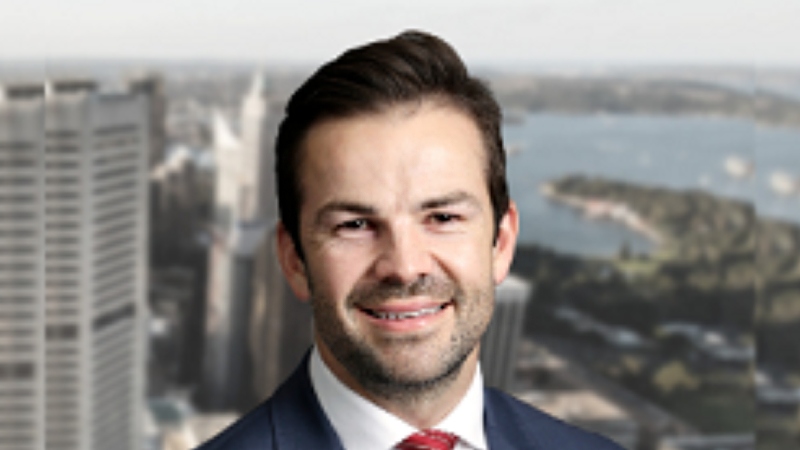Advisers encouraged to go beyond the ‘average’ retirement strategies
The use of “averages” in retirement planning is quite common, but it can be problematic for advisers when trying to plan for risk uncertainties when building an SMSF retirement strategy.
In a recent AMP SMSF online blog, Darren Beesley, head of retirement and senior portfolio manager, said that average returns, average expenditure and average life expectancy are all commonly factors into consideration around building and testing a retirement strategy.
But the “averages” can be problematic when they are effectively fixed into models without proper allowances for the uncertainties involved.
“Even if the assumptions underlying a model are correct, the possibility of tail risk is often ignored, which can be pretty serious given the range of outcomes around variables, such as longevity,” he said.
“Most significantly, over-reliance on averages ignores the likelihood of underperformance — overall or at critical points in a portfolio’s lifetime.
“Advisers actually have to take a leap of faith to look beyond the averages to justify the use of a product or strategy that focuses more on risk management versus return maximisation.”
With the relatively stable environment of the past three decades that has done little to shift this paradigm, Mr Beesley said in a world which doesn’t turn out to be average, retirees can’t afford to underappreciate risk.
The first step in addressing this shortcoming is to stress test a retirement plan with those assumed “averages”.
“This includes considering what happens if a retiree’s lifespan is increased by 10 to 15 years. What are the ramifications of a three-year string of poor returns immediately following retirement?” he said.
“This can be done manually to test extremes, or systematically simulating thousands of outcomes and analysing the range of outcomes — a process known as Monte Carlo Simulation.
“Once a retiree has a better grasp of the true range of financial outcomes for their retirement, the next decision, in our opinion, is whether to stick with their initial strategy or move to a more risk-aware approach.”
Dealing with sources of risk
An assumption of an “average return” year in and year out over the course of retirement allows for its fair share of negative returns, but Mr Beesley said the timing in which they occur can be pivotal in determining outcomes for the portfolio.
“We believe a key way to avoid sequencing risk is by structuring a defensive portfolio that will withstand severe outcomes,” he noted.
“Unprotected portfolios not only bear direct risk, but they could also increase the risk of poor decision-making, such as selling on the downswing. Investors who are concerned about this type of risk — particularly those approaching vulnerable moments for their portfolio — should consider funds that transparently discuss how they manage downside risk.”
When it comes to low returns, over the past 20 years Mr Beesley noted retirees have been blessed with strong returns from bonds, as yields have continued to trend down, driving bond prices up. In a low inflation or deflationary environment, bond returns have tended to negatively correlate with equities, smoothing out returns for a balanced portfolio.
In a combination of strong returns and defensive characteristics, bonds have served as an excellent allocation in a diversified portfolio for retirees.
“Today, the prospect of rising inflation acting as a drag on bond values and equity markets (due to concerns about higher interest rates) means that returns should be expected to be historically far lower and the diversifying effect of bonds shouldn’t be counted on, taking away a vital defensive option for investors,” he said.
“To overcome this, we believe investors should consider being more dynamic in seeking diversification and moving away from the traditional mix of equities and bonds. This could include going up the growth spectrum while including more downside protection strategies such as index options, or alternatively paying more for a capital guarantee.
“It may also include increasing allocations to non-traditional asset classes such as private equity, private debt, hedge funds, and direct infrastructure. In any case, in the current low-rate environment, investors should be realistic with expected returns and adjust their consumption and goals accordingly in our opinion.”
Ultimately, Australia’s social security system provides some level of security for an unexpectedly long lifespan, providing the recipient is well set up to maintain themselves on a lower level of income.
Mr Beesley said for those who want to insure against this contingency, there are a suite of products on the market (mainly forms of annuities) that address the concern directly.
As a result, a retirement strategy should never be set in stone.
“Things change and the unexpected happens; the ability to adapt and adjust our plan as life unfolds is perhaps the most powerful lever investors have in retirement,” he said.
“Flexibility and dynamism in the face of adversity is a great thing when it comes to consumption but is often detrimental when it comes to investment decisions.
“We believe investors should be willing to cut down on the ‘nice-to-have’ when necessary but should avoid the temptation to shift to cash in a downturn, given the tendency for markets to mean revert. Portfolios should be constructed to deal with adverse events before they happen, not afterwards.
“The same is also true on the upside, when the temptation to divert from a strategy to chase winners can be strong. We’re seeing elements now in the enthusiasm over certain tech stocks and cryptocurrency. Market cycles, and what was ‘hot’ yesterday may not be tomorrow. We believe is it important to stick to the plan.”

Tony Zhang
Tony Zhang is a journalist at Accountants Daily, which is the leading source of news, strategy and educational content for professionals working in the accounting sector.
Since joining the Momentum Media team in 2020, Tony has written for a range of its publications including Lawyers Weekly, Adviser Innovation, ifa and SMSF Adviser. He has been full-time on Accountants Daily since September 2021.


